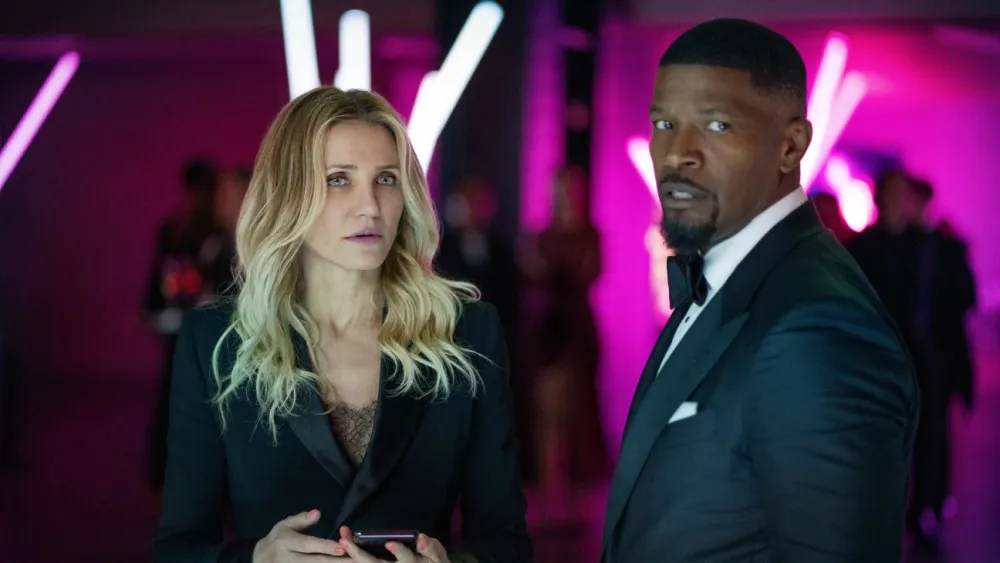BY:
Published 9 years ago
Baltimore City State’s Attorney Marilyn Mosby shot to the national spotlight last month for swiftly bringing charges against the six police officers responsible for Freddie Gray’s death.
Since then, video footage of a 20-year-old Marilyn winning a case on Judge Judy has been unearthed, and many have been eager to learn more about the youngest chief prosecutor of any major U.S. city.
In steps Vogue, who profiled the 35-year-old for its current issue.
Inside, Marilyn discusses indicting the six police officers in Freddie’s death, being brought up in a family of cops and meeting her husband Nick at Tuskegee University.
Check out an excerpt from Marilyn’s profile Meet Marilyn Mosby: The Baltimore Prosecutor in the Eye of the Storm below.
When Baltimore’s young prosecutor Marilyn Mosby filed charges against police officers in the death of Freddie Gray, she leaped onto the national stage—as heroine and lightning rod.
It was 21 minutes that would change her life and send ripples of both outrage and relief across the country. On the first day of May, as a battalion of lawyers stood on the steps of Baltimore’s War Memorial, state’s attorney Marilyn J. Mosby stepped up to the podium and did what no lead prosecutor in America had done in many turbulent months: bring swift and severe charges against police officers in the death of a black man.
A stunned cheer rose from the crowd as 35-year-old Mosby made her statement. The six officers involved in the arrest of Freddie Gray, who had died in April from spinal injuries sustained in custody, would face 28 counts, ranging from false imprisonment to second-degree murder. In forceful language, Mosby described her department’s investigation and how the state’s medical examiner had ruled Gray’s death a homicide. She acknowledged the unrest in Baltimore, coming on the heels of police killings in other cities of Michael Brown, Eric Garner, and Tamir Rice. “I have heard your calls for ‘No justice, no peace,’ ” she said. “However, your peace is sincerely needed as I work to deliver justice on behalf of Freddie Gray.”
Suddenly this young prosecutor who had served barely 100 days in office had become a national figure. “I was on CNN, and we were all assured that it would be a routine press conference,” says Marc Lamont Hill, a political commentator and professor of African-American studies at Morehouse College in Atlanta. “Instead, Mosby came out swinging for the fences. I was in shock.” Her statements gripped a country embroiled in a debate about race and police misconduct, and energized those who believed that officers were not being held accountable. Selma director Ava DuVernay tweeted that she wanted make a documentary about Mosby. The U.S. congressman for Maryland Elijah Cummings, a central figure in the Baltimore protests, told the cameras, “Thank God [for] Marilyn Mosby and her team.”
“It was a powerful act that allowed the city to begin healing,” says Hill. “Within an hour of that announcement, the entire black community was laying claim to her—ready to saint her because she did her job.”
When I meet Mosby eleven days later, it is clear that she hadn’t expected such an intensity of response. “I don’t think I felt the weight of the case stepping up to that podium,” she tells me as we sit down for dinner at her favorite café in Baltimore’s Harbor East. “I was thinking, I’m doing the right thing. That’s what I’m here for.” We’re at a corner table where she can keep her eyes on her security team—thickset men with earpieces, a round-the-clock detail that has been with her since she took office in January. Dressed in a simple pantsuit, sleeveless blouse, and not a trace of makeup, Mosby is warm and willing to accept hugs from fellow diners who thank her “for giving us justice.” Otherwise, she is every inch the prosecutor: straight-backed, concise, a portrait of self-control.
For the complete profile, head on over to Vogue.










